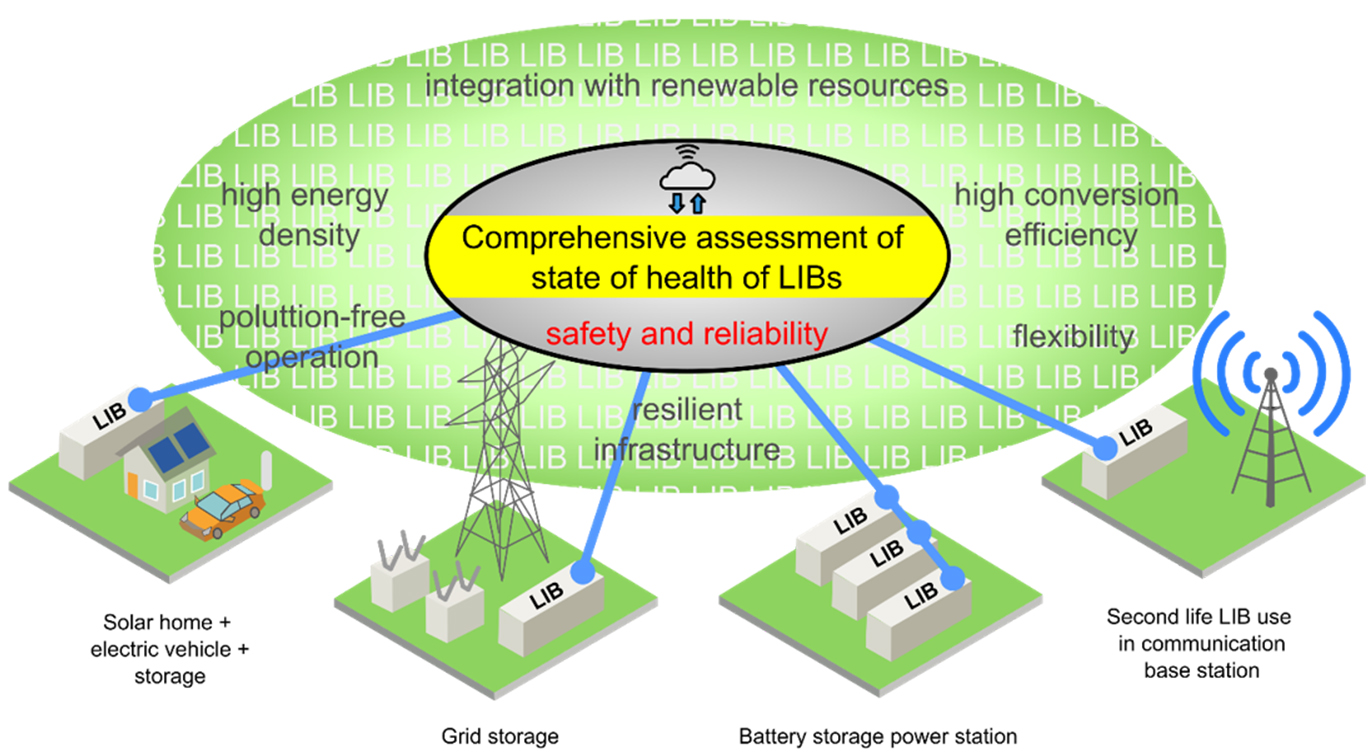Research
The Energy Systems Lab unifies modeling and experimental research to develop feasible solutions to address current problems involving energy storage systems.
Battery modeling:
Lithium-ion batteries are essential for transportation, uninterruptible power supply (UPS) applications, integration with renewable energy sources, and supporting transmission and distribution of electricity. Due to their complexity and high-energy densities, the health of lithium-ion batteries must be continuously monitored to ensure reliability and prevent failures of any kind that may lead to a catastrophic event known as thermal runaway. Our research group develops enhanced models to assess and predict relevant degradation mechanisms as cells age using existing and newly developed physics-based equations. This research is conducted in a way to ensure easy implementation in commercial systems, facilitating smooth industry adoption.

Electrode design:
The next generation of energy storage devices requires novel active materials that present chemical and thermal stability, higher power and energy densities, for instance. We develop and study novel active materials to address the current critical challenges towards a more sustainable future. Our research group focuses on studying, developing, and stabilizing layered materials that not only present intercalation but also conversion charge storage mechanism for beyond lithium-ion batteries.
